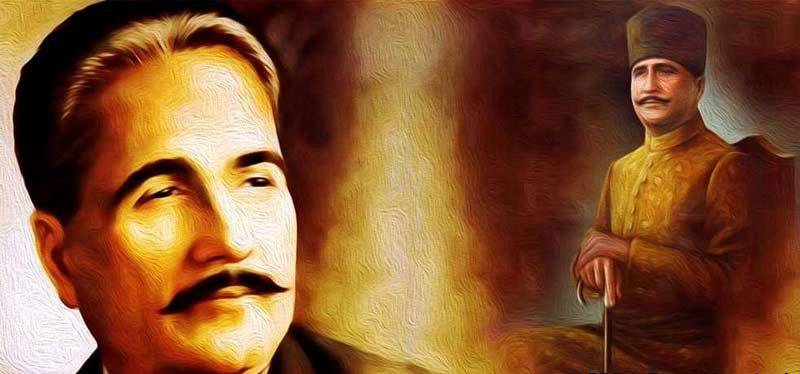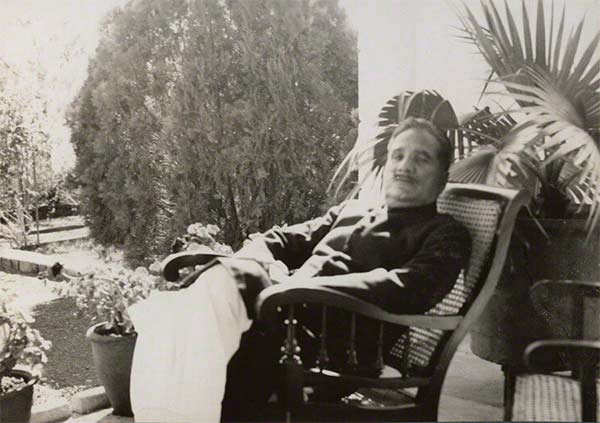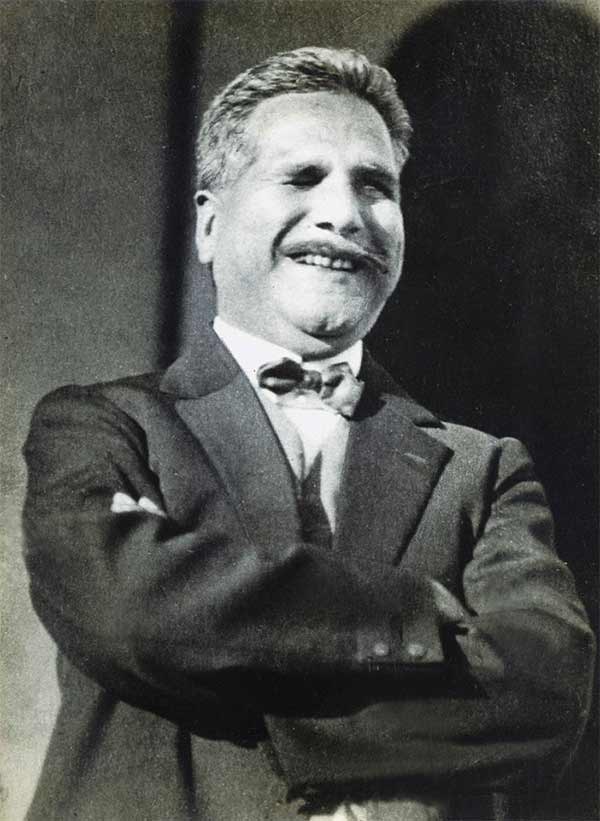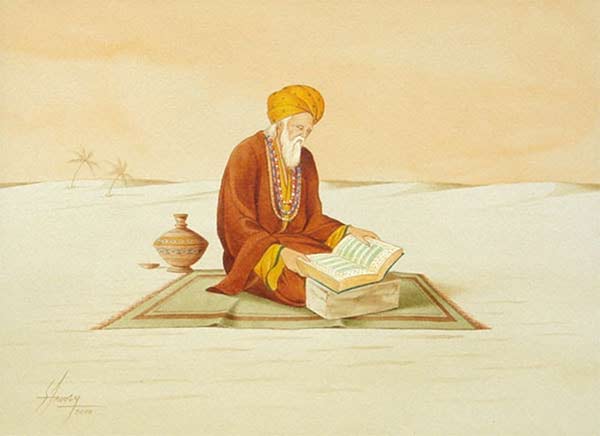
Allama Iqbal is one of the best known Muslim poets and thinkers of twentieth century. His work has influenced Muslims across the globe but it is the subcontinent where his ideas have shaped history and are also deeply contested. The iconic poet-philosopher is officially Pakistan’s national poet and is regarded as being the ‘Mufakkir-e-Pakistan’ (The Thinker of Pakistan) and The Sage of Ummah. His literary masterpieces are widely quoted by both liberal and conservative thinkers for validation of their respective positions.
Although the prolific writer enjoys near-universal respect in Pakistan, it is the conservative factions of the society that have traditionally championed Iqbal’s ‘cause’. So much so that Dr Israr Ahmad, the fiercest advocate of Khilafat that Pakistan ever produced, would extensively quote from Iqbal’s poetry in his lectures and sermons. The list is long and well-known.
But was Iqbal really a conservative? Let’s find out.

One of Iqbal’s most iconic works on Islam is his book ‘Reconstruction of Religious Thought in Islam’. The book is a collection of Iqbal’s essays on the need for reform in Islamic societies. The book is important especially in the context of his famous Allahabad address to the All India Muslim League’s (AIML) annual session, 1930.
In this address, Iqbal presented the idea of a separate homeland for the Muslims of India. During the course of next three years, Iqbal formulated these lectures that were published in the form of a book in 1934.
Therefore, ‘The Reconstruction’ helps us assess Iqbal’s vision for a future Muslim state.
The book’s 6th chapter, ‘The Principle of Movement in Islam’ is a strong rejection of the practical confinement of the authority of ‘Ijtihad’ in the founders of the four dominant legal schools of Sunni Islam.
Iqbal is of the opinion that Islam has an innate disposition for evolution. He writes:

He rejects the supposed finality of the religious law in the 4 Fiqhs of Islam. Iqbal at one point quotes the 17th century English philosopher Thomas Hobbes.
He believes, Law of Islam is ‘capable of evolution’
Building on the same idea, Iqbal goes on to declare the institution of parliament as being ‘thoroughly consistent with the spirit of Islam.
Reconciling the idea of state with Islam, Iqbal writes:
Iqbal’s emphasis on ‘reason’ and ‘rationalism’ is unmistakeable throughout the lecture. He sympathises with the conservative legists, explaining why they felt the need to for a uniform social law. But then comes the sharp rebuke:
While praising the jurist Imam Abu Hanifa, Iqbal writes:

Iqbal is one of the most revered scholars of Islamic thought in the modern era. Though his emphasis on ‘reason’, he offers a path for the reformation of Islamic Law. Iqbal’s endorsement of Turkey’s Ijtihad of ‘elected assembly’ shows the way for Muslims to reform Islamic jurisprudence through their elected representatives.
Contrary to Iqbal's vision, the three major attempts to reform the ‘Islamic law’ in Pakistan’s 70-year history were made during the reigns of dictatorial regimes:
The Islamic Republic of Pakistan needs to return to Iqbal's grand idea of reform and movement if it really wants to create a progressive, modern and pluralist society. Iqbal's work makes it clear that he did not argue for a theocracy and considered reforming jurisprudence a vital task for Muslims in the subcontinent and beyond.
Although the prolific writer enjoys near-universal respect in Pakistan, it is the conservative factions of the society that have traditionally championed Iqbal’s ‘cause’. So much so that Dr Israr Ahmad, the fiercest advocate of Khilafat that Pakistan ever produced, would extensively quote from Iqbal’s poetry in his lectures and sermons. The list is long and well-known.
But was Iqbal really a conservative? Let’s find out.

One of Iqbal’s most iconic works on Islam is his book ‘Reconstruction of Religious Thought in Islam’. The book is a collection of Iqbal’s essays on the need for reform in Islamic societies. The book is important especially in the context of his famous Allahabad address to the All India Muslim League’s (AIML) annual session, 1930.
In this address, Iqbal presented the idea of a separate homeland for the Muslims of India. During the course of next three years, Iqbal formulated these lectures that were published in the form of a book in 1934.
Therefore, ‘The Reconstruction’ helps us assess Iqbal’s vision for a future Muslim state.
The book’s 6th chapter, ‘The Principle of Movement in Islam’ is a strong rejection of the practical confinement of the authority of ‘Ijtihad’ in the founders of the four dominant legal schools of Sunni Islam.
The theoretical possibility of this degree of Ijtihād is admitted by the Sunnīs, but in practice it has always been denied ever since the establishment of the schools, inasmuch as the idea of complete Ijtihād is hedged round by conditions which are well-nigh impossible of realization in a single individual. Such an attitude seems exceedingly strange in a system of law based mainly on the groundwork provided by the Qur’an which embodies an essentially dynamic outlook on life.
Iqbal is of the opinion that Islam has an innate disposition for evolution. He writes:
… But eternal principles when they are understood to exclude all possibilities of change which, according to Quran, is one of the greatest ‘signs’ of God, tend to immobilize what is essentially mobile in its nature.

He rejects the supposed finality of the religious law in the 4 Fiqhs of Islam. Iqbal at one point quotes the 17th century English philosopher Thomas Hobbes.
It is, I think, the English thinker Hobbes who makes this acute observation that to have a succession of identical thoughts and feelings is to have no thoughts and feelings at all. Such is the lot of most Muslim countries today. They are mechanically repeating old values…
He believes, Law of Islam is ‘capable of evolution’
The question which confronts [the Muslims] today, is whether the Law of Islam is capable of evolution– a question which will require great intellectual effort, and is sure to be answered in the affirmative, provided the world of Islam approaches it in the spirit of ‘Umar– the first critical and independent mind in Islam who, at the last moments of the Prophet, had the moral courage to utter these remarkable words: “The Book of God is sufficient for us.”
Building on the same idea, Iqbal goes on to declare the institution of parliament as being ‘thoroughly consistent with the spirit of Islam.
According to Sunni Law, the appointment of an Imām or Khalīfah is absolutely indispensable. The first question that arises in this connexion is this– Should the Caliphate be vested in a single person? Turkey’s Ijtihād is that according to the spirit of Islam the Caliphate or Imāmate can be vested in a body of persons, or an elected Assembly … Personally, I believe the Turkish view is perfectly sound … The republican form of government is not only thoroughly consistent with the spirit of Islam, but has also become a necessity in view of the new forces that are set free in the world of Islam.
Reconciling the idea of state with Islam, Iqbal writes:
The essence of Tawhid, as a working idea, is equality, solidarity, and freedom. The state, from the Islamic standpoint, is an endeavour to transform these ideal principles into space-time forces, an aspiration to realize them in a definite human organization. It is in this sense alone that the state in Islam is a theocracy.
Iqbal’s emphasis on ‘reason’ and ‘rationalism’ is unmistakeable throughout the lecture. He sympathises with the conservative legists, explaining why they felt the need to for a uniform social law. But then comes the sharp rebuke:
… But they did not see, and our modern Ulema do not see, that the ultimate fate of a people does not depend so much on organization as on the worth and power of individual men. In an over-organized society the individual is altogether crushed out of existence.
While praising the jurist Imam Abu Hanifa, Iqbal writes:
… Abū Hanīfah, who had a keen insight into the universal character of Islam, made practically no use of these traditions. The fact that he introduced the principle of Istihsān, i.e. juristic preference, which necessitates a careful study of actual conditions in legal thinking, throws further light on the motives which determined his attitude towards this source of Muhammadan Law.

Iqbal is one of the most revered scholars of Islamic thought in the modern era. Though his emphasis on ‘reason’, he offers a path for the reformation of Islamic Law. Iqbal’s endorsement of Turkey’s Ijtihad of ‘elected assembly’ shows the way for Muslims to reform Islamic jurisprudence through their elected representatives.
Contrary to Iqbal's vision, the three major attempts to reform the ‘Islamic law’ in Pakistan’s 70-year history were made during the reigns of dictatorial regimes:
- The first was reformation of Family Laws under General Ayub Khan.
- Second was General Zia’s regressive changes in law, especially the introduction of Hudood Ordinance.
- And the last one came when changes were made in Zia’s Hudood Ordinance under General Pervez Musharraf.
The Islamic Republic of Pakistan needs to return to Iqbal's grand idea of reform and movement if it really wants to create a progressive, modern and pluralist society. Iqbal's work makes it clear that he did not argue for a theocracy and considered reforming jurisprudence a vital task for Muslims in the subcontinent and beyond.
